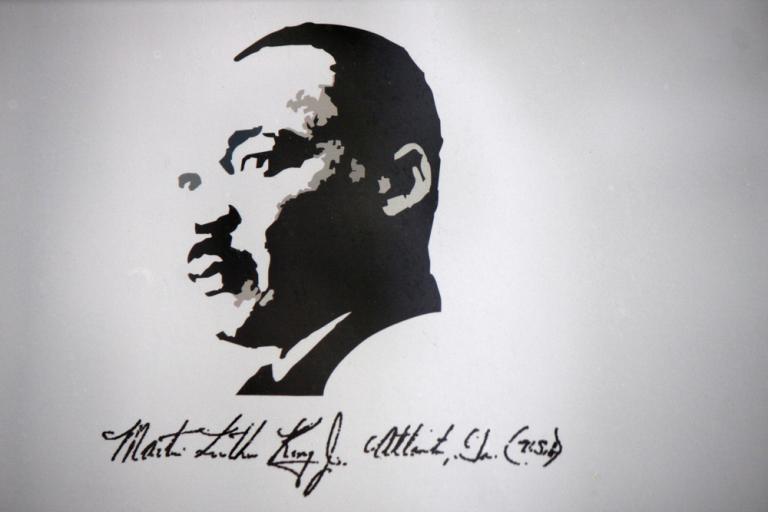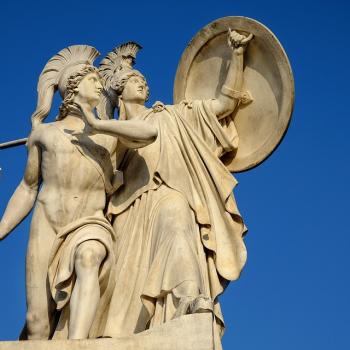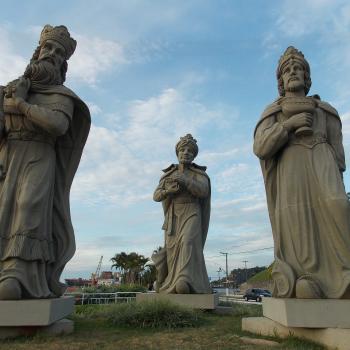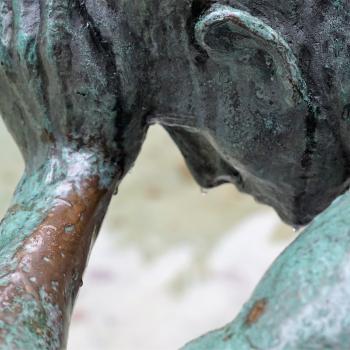Today is the only federal holiday designated and observed nationwide specifically for the honoring of a single man and his contributions to American life. Our nation’s story is immeasurably better for his having lived, for he helped us to become more of what we want to be. Our nation’s founding was an act of liberty, an act of justice, and an act of opportunity, but it was limited and narrowly envisioned. MLK, by pushing us to extend liberty, justice, and opportunity to more of our citizens helped us be more authentically American.
He did this because he was a Christian. He had the resources and the vision—the back story and the future story—to create a movement that drew together men and women of good will, of courage, and of hope to paint a picture of America that was truer to our deepest longings. His dream gathered together the love of Jesus, the call to righteousness, and the transforming power of the Cross to define a new, beloved society.
This year—pinioned as it is between the rise of the Black Lives Matter movement and the onset of election season—one of his sermons seems particularly pertinent. It is, appropriately, the first of those included in Strength to Love, a collection of his sermons. In it, King sets the tone for the following chapters, indeed for all the work he did and called us to join.
King begins with Jesus’ words in Matthew 10.16: “Be ye therefore wise as serpents, and harmless as doves.” King preached it, telling us that we, who so badly need to be tough-minded and soft-hearted, are instead soft-minded and tough-hearted. We think less and hate more. The less we think, the more we hate. The more we hate, the less we think.
If ever this was true, it is today. King writes, “Our minds are constantly being invaded by legions of half-truths, prejudices, and false facts.” Then. And now. And we believe them, because we want to believe them. Because we refuse the slow, hard work of discernment, this “morass of false propaganda”—some from the left, some from the right—hardens our hearts.
Let us consider, first, the need for a tough mind, characterized by incisive thinking, realistic appraisal, and decisive judgment. … Who doubts that this toughness of mind is one of man’s greatest needs? Rarely do we find men who willingly engage in hard, solid thinking. There is an almost universal quest for easy answers and half-baked solutions. Nothing pains some people more than having to think.
King’s movement was deeply embedded in careful, prayerful thought. “The Letter from Birmingham Jail” is not a blast of profanity and spewed hate, but simultaneously a respectful and painfully pointed invitation to his white colleagues in ministry to step into their Christian faith, to think about what they believed and why, and then to act accordingly.
The most recent edition of The Economist reports that two members of Congress—a Republican and a Democrat, both from New York—are planning to leave Congress. Both are moderates, and thus anathema to the more strident voices within their parties. Both complained that the centrist positions were less and less viable. And yet even the most cursory study of history will tell us that when political factions become more extreme and the center disappears, governments become fragile and susceptible to illiberalism, which could come from the radical left or the radical right. The hardening of the fringes and the destruction of the center come from a rejection of temperate and nuanced thought. Early considerations of democratic forms of government always cautioned about “the mob,” the unthinking masses who are so easily swayed by the loudest and most simplistic rhetoric.
King urges us not to be “the mob.” Centers disappear when we’re unwilling to listen to each other, unwilling to compromise, unwilling to think clearly but prefer “half-baked solutions.” King extended a hand of love and hope to his white colleagues. He did so because he believed that:
Beneath and above the shifting sands of time, the uncertainties that darken our days, and the vicissitudes that cloud our nights is a wise and loving God. This universe is not a tragic expression of meaningless chaos but a marvelous display of orderly cosmos… Above the manyness of time stands the one eternal God with wisdom to guide us, strength to protect us, and love to keep us. … With a surging fullness he is forever moving toward us, seeking to fill the little creeks and bays of our lives with unlimited resources.
King’s God made King’s work possible and rendered it powerful. I celebrate it.
Photo courtesy 360b / Shutterstock.com.













